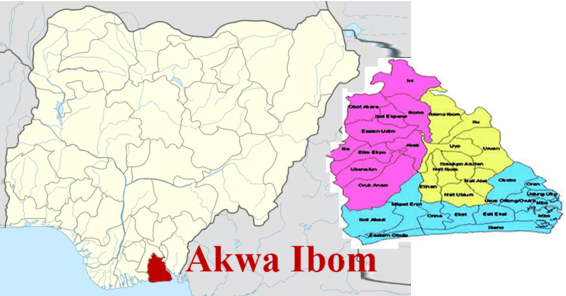Some of the trainees of the 3000 project of Akwa Ibom State Government, who claimed to be abandoned, have threatened to stage a protest.
The state government, through the Ministry of Trade and Investment, had in 2021 commenced the training of 3,000 youths in a scheme meant to identify, train, mentor, empower and build the capacity of existing Small and Medium Enterprises (SMEs) and startups across the 31 local councils of the state.
The scheme was meant to run in three phases with each phase having 1000 trainees who would focus on three areas of choice which included, oil and gas, agribusiness, ICT, and SMEs to enable them to secure gainful employment.
However, the beneficiaries of the project, who have successfully concluded their training on April 2021, have expressed worry that they have neither gotten the certification nor startups as promised by the government over one year of the exercise.
It was gathered that the graduation exercise was stalled following the resignation of the then commissioner, Mr. Prince Akpabio in pursuit of his political ambition.
A trainee, who identified himself as Mfon, narrated to our correspondent that the new Commissioner, Engr. Camillus Essien Umoh, invited them to the state secretariat for a graduation ceremony but later dismissed them promising to fix another date for the exercise as he was very new in office.
Mfon, who lamented that nothing has been done yet, urged the state government to fulfill its promise by giving them the start-ups so as to put what they learnt into practice adding that they are wasting away.
Another trainee, who did not want her name mentioned for fear of victimisation, regretted that despite the stress they passed through and the monies spent on transportation from her local government, Ikono, to the State Secretariat, Uyo which was their rallying point, she is yet to receive the startups from the government.
READ ALSO: Rivers, Edo, Akwa Ibom, 29 Others Attract Zero Foreign Investments In Q1 – Report
She said, “the stress was too much. We would go to the Ministry and the car they made available will convey members to different designated training centres around the local government.
“By 4:00 pm they will convey you back to the secretariat where you go back to your destination. It was not easy for some people from far distance, to transport themselves to the state secretariat, some people from Ini, Ibeno really suffered because they paid their way to Uyo. the government told us that at the end of the training they will empower us, but nothing is being done.”
Also, another trainee identified as Joseph disclosed that they felt abandoned by the state government noting that plans are underway to embark on a protest.
“Upon all the promises by the state government to us during the training, nothing has been done, no empowerment, nothing, and they will be telling us to come today, come tomorrow. We are planning a day to go out for protest because we are not happy at all,” he said.
However, a source in the Ministry of Trade and Investment, who also pleaded anonymity, explained that the graduation ceremony would have taken place in April but following the resignation of then-commissioner, Prince Akpabio to contest for the House of Assembly, the ceremony was stalled.
He attributed the delay to the rise in the exchange rate adding that the laptops that were supposed to be given to those in ICT were estimated at about N150, 000 each but have risen to N550,000 now adding that the state government is doing something about that.
READ ALSO: APC Has No Governorship Candidate In Akwa Ibom, INEC Declares
According to the source, “from the market survey we conducted so far, the estimated price for laptops has gone up. Another memo has been sent to the governor on the variation so that the Items can be purchased.
“They should be more patient. If they are given money equivalent they may lavish the money and that may not make meaning to them. The graduation ceremony would be done at the same time.”
DAILY POST
































